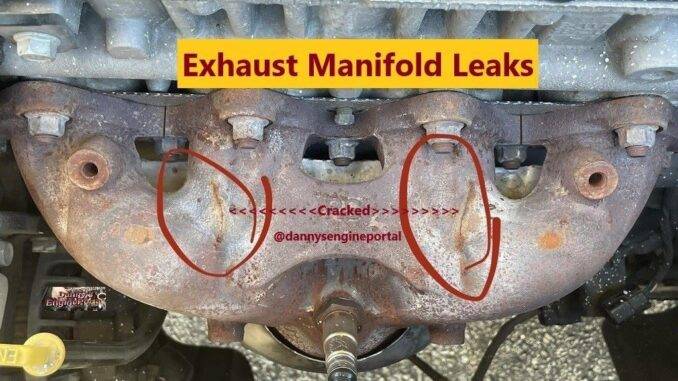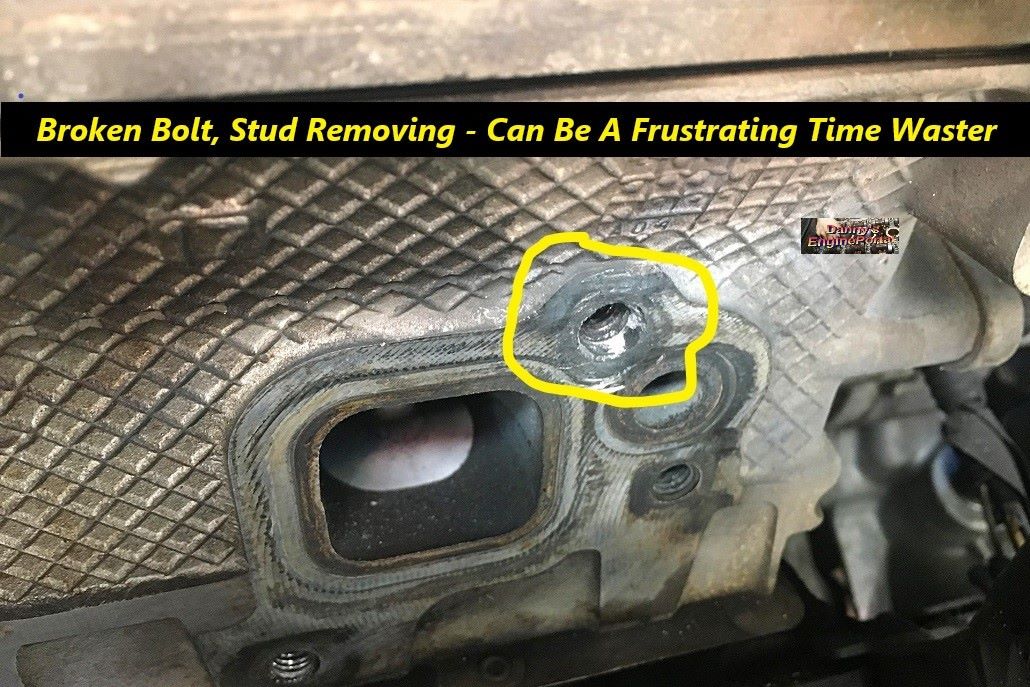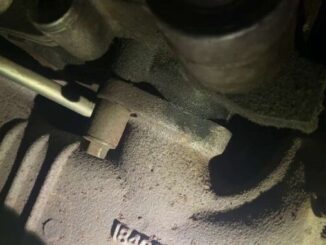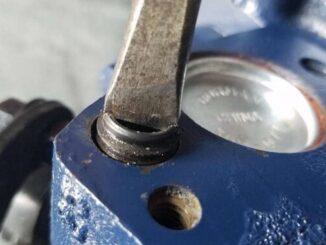
So, exhaust manifold leaks, can be dangerous. And, also cause other costly problems.
The function of the exhaust manifold, is to collect the exhaust from each cylinder. And, then combine it, into one pipe.
It is bolted, directly to the cylinder head. Therefore, it is the first line of defense from hot, and dangerous gases. Subsequently, once these gases exit the exhaust system, the exhaust manifold has done its job.
Above all, if there is a crack or any exhaust manifold leaks, the whole exhaust system is affected.
First, when gases come out of the engine, they are extremely hot. But, they do cool slowly, as they reach the exhaust pipe at the back of the vehicle.
So, if you smell exhaust from the engine compartment, and hear a ticking noise, you could have a leak. But, this ticking noise is often misdiagnosed, as a lifter ticking noise. Over time, the gases leaking from a manifold, will damage other parts.
If you think you have a leak, always start with a visual inspection. Look for black soot around the manifold and downpipe connection.
Exhaust Manifold Leaks, Can Produce A Few Signs:
- Excessive, engine noise
- Decrease in power, acceleration, and fuel efficiency
- Burning smell, coming from the engine bay
Exhaust Manifold Leaks, Can Be Caused By:
- Cracked exhaust manifolds
- Leaking manifold gaskets
- Loose or broken, bolts or studs
Cracked, Exhaust Manifolds
So, leaks in a manifold are often, cracks in the metal. And, are due to the intense temperatures of the engine. Cracks may start out small, like a hairline crack. And, may be apparent, when the vehicle is first started. Once the manifold heats up, the crack might self-seal, as the metal of the manifold expands. Actually, this can also, affect an intake manifold.
Then, the noise coming from exhaust manifold leaks, then becomes less apparent. However, over time, the hairline crack will begin to increase in size, due to constant heating and cooling.
Leaking, Manifold Gaskets
The gasket is another area of concern. Because, it has to sustain the expansion and contraction, of the heated metal. Its failure signs, are similar to the cracked manifold, and could become a larger problem.
Exhaust manifold gaskets, are very important. Because, they are the main gasket, that seals the entire exhaust system. So, if the exhaust manifold gasket fails, it can cause problems, with the performance and drivability of the vehicle.
Loose Or Broken, Bolts Or Studs
Sometimes an exhaust manifold starts to leak, because a bolt or stud has broken. Exhaust manifold bolts and studs, both suffer the same fate. Consequently, getting brittle from too many, heating and cooling cycles. Finally, with expansion and contraction of the whole system, something has to give. And, that causes exhaust manifold leaks.
As a result, making broken bolts or studs, a fairly common problem. Not to mention, the repair for this, can be a nightmare as well. The good news today is, there are better tools and techniques, for making this repair easier.
Potential Damage, Caused By Leaks Include:
- Burned, exhaust valves.
- Improper fuel trim (as the leak adds extra oxygen that is picked up by the oxygen (o2) sensor.)
- Slow warm-up time (which also causes, using more fuel.)
- Catalytic Converter fails too soon.
- Sensors (oxygen (O2) sensors).
- (EGR) Valve function.
So, these factors all depend on, where the leak is located, in the exhaust system. The further away from the engine and the Catalytic Converter, the less damage there will be.
Conclusion
So, if you have any exhaust manifold leaks, it will have an impact on, the pressure in the exhaust system. As a result, loosing fuel economy, and leading to higher emissions.
BY DANNY BENDER




